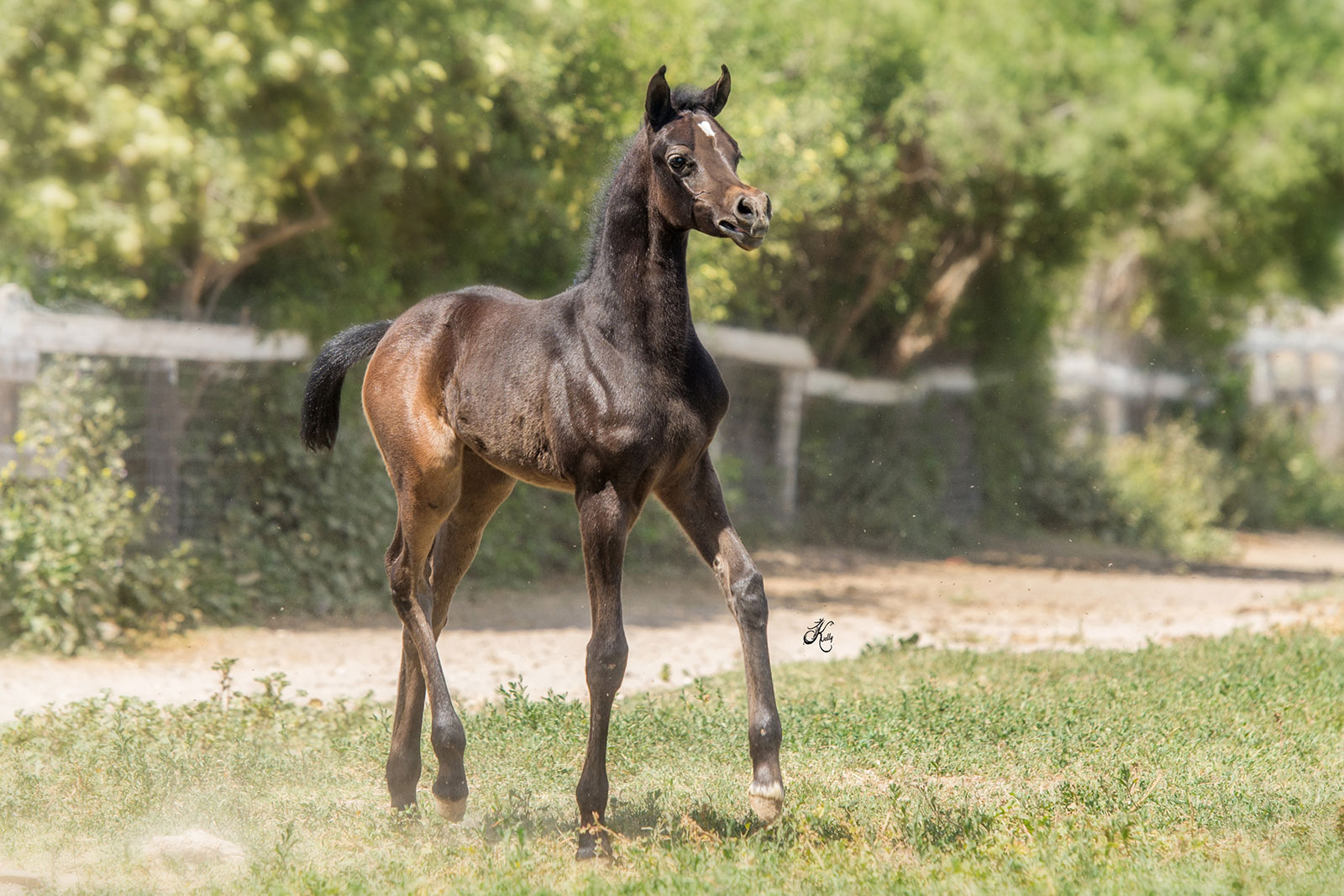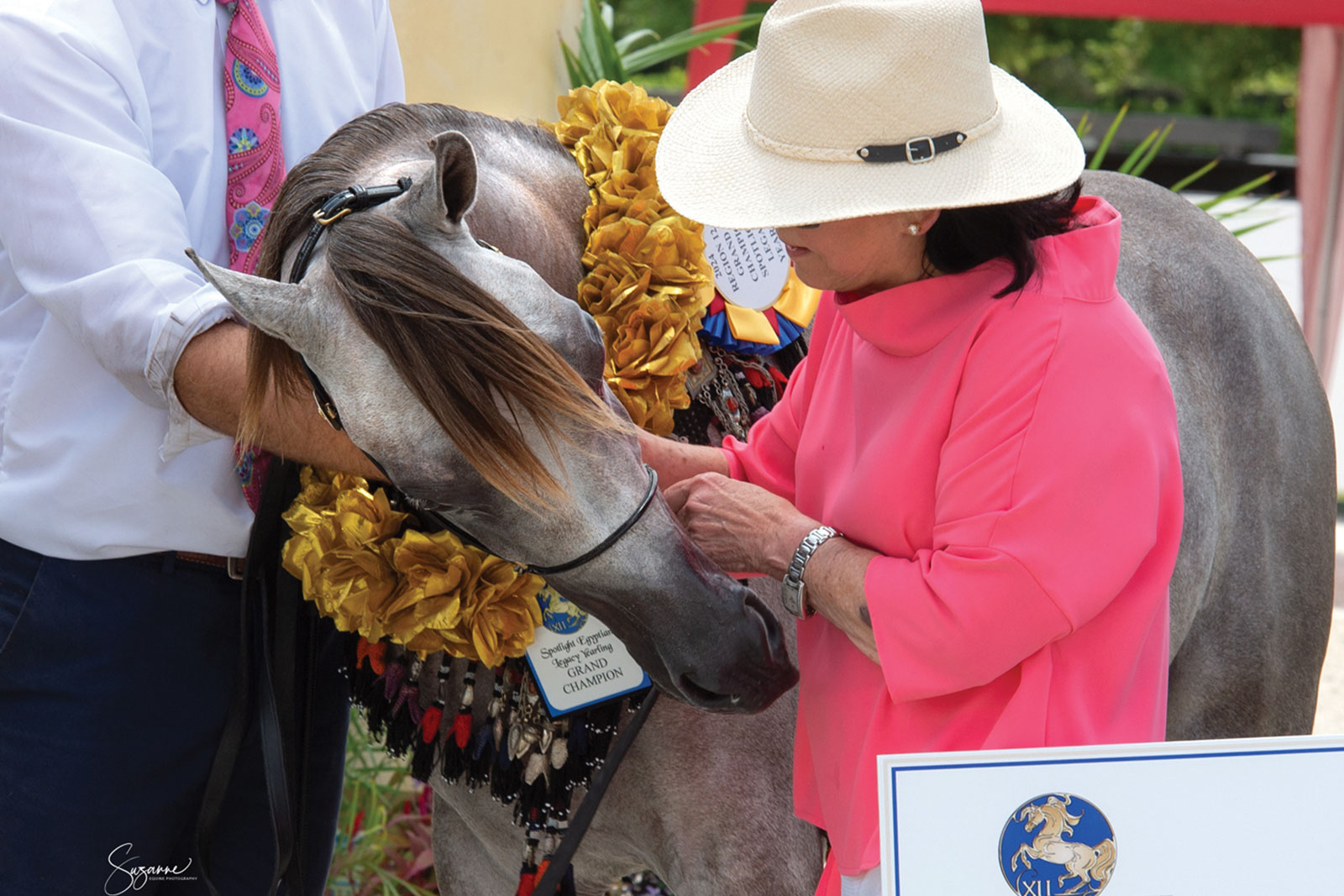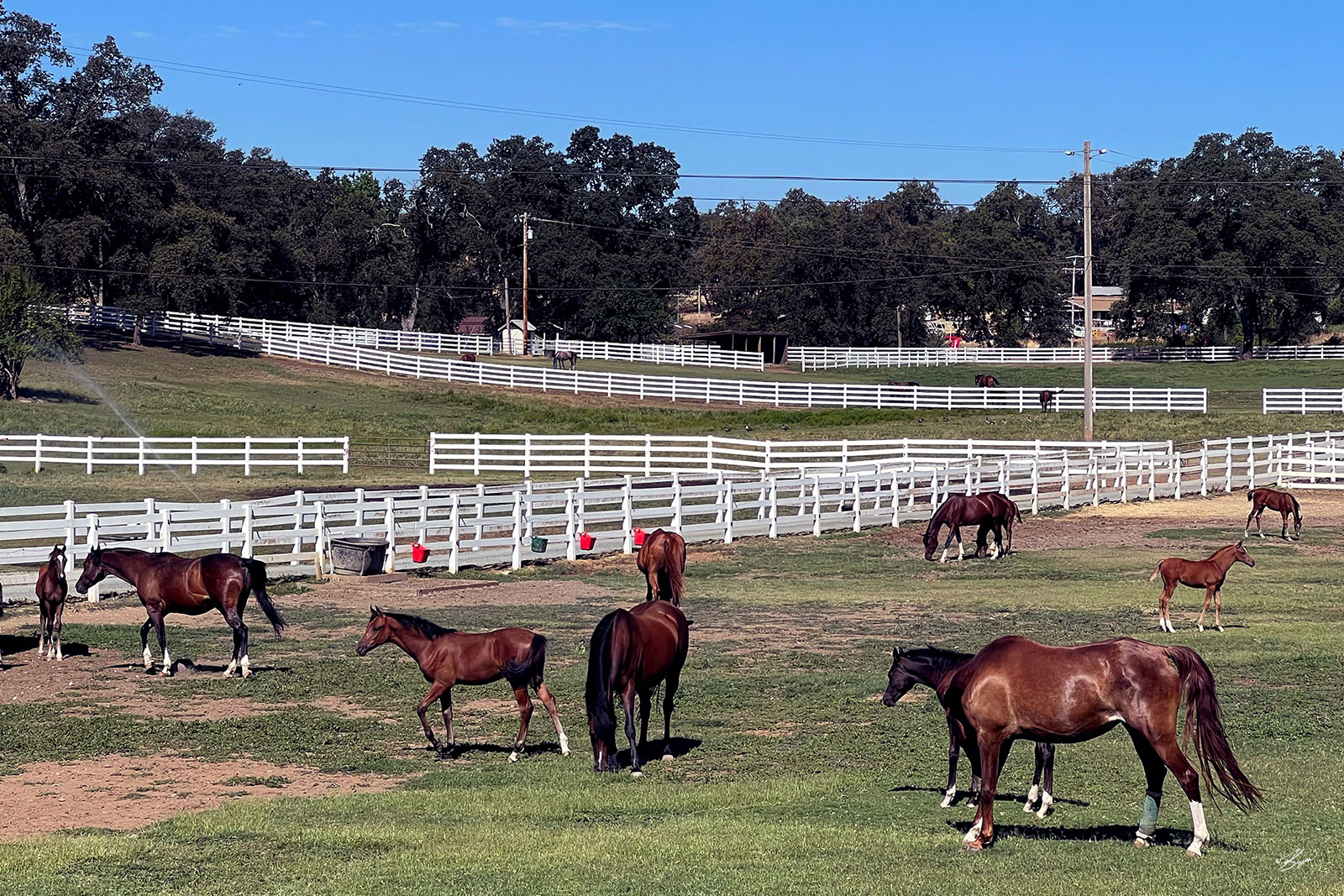The jockey swung into the saddle with the air of a man who felt the horse beneath him was… well, beneath him. He’d been hired to ride my stallion Asjah ibn Faleh on the track at the Kentucky Horse Park to receive a lifetime achievement award during the 1993 Egyptian Event. Perhaps the jockey was remembering races he’d won at nearby Churchill Downs and thinking how this—a photo op for a show horse—was somehow unworthy of his talents. His posture seemed to say, “Let’s get this over with.” And yet, within a few short minutes, the horse would give this jockey a new, different racetrack memory.
Horse and rider made their way from the Stallion Barn, down the hill and onto the track. The jockey’s instructions were simple: jog the horse in front of the presenters and past the crowd, turn and jog him back, dismount, and hold the horse for the presentation of the flower blanket.
A who’s who of the Arabian horse world were in attendance that day. Asjah’s breeders at Gleannloch Farms, Doug and Margret Marshall, were with me down on the track, along with their trainers, Tom and Rhita McNair. The renowned breeders of straight Egyptians Don and Judy Forbis from Ansata Arabian Stud were in the grandstand.
As agreed, the jockey jogged the stallion past the presenters and the crowd. In a booming voice, the announcer listed the many awards Asjah had won over the years: The International Arabian Horse Association’s 1977 Colt of the Year, the 1980 Horse of the Year, followed by a litany of halter and performance awards.
As the jockey turned the stallion to jog back to the presenters, I imagined each of us who’d admired this special creature over the years remembering our own favorite Asjah ibn Faleh victories—the races he’d won, the track records he’d broken, the show crowds he’d beguiled. What I didn’t imagine was that this would be the moment my 19-year-old stallion would decide to teach an arrogant jockey a lesson about Arabian horses.
I’ve watched the video from that day many times and can attest that Asjah allowed exactly two trot beats before he suddenly bolted into a full gallop. The disinterested jockey was caught unprepared. I watched as my horse flew by the stunned presenters holding the flower blanket, thundered past the applauding crowd, and left the outrider struggling to catch up.
The jockey–no longer disinterested—couldn’t stop the horse. He stood in the stirrups, pulling the reins with all his might, but to no avail. On a day that was supposed to have been about ceremony and honoring tradition, Asjah was determined to deliver an indelible lesson: never underestimate an Arabian War Horse.
I’ll admit part of me enjoyed watching the jockey working desperately to avoid embarrassment, but I was also worried for the safety of the horse and the rider. Doug Marshall was beside himself with pride and laughter. Seeing the concern on my face, Margaret Marshall took my hand, leaned in, and said, “I just love Asjah.”
His point proved and his victory lap complete, Asjah came to a stop in front of us. Tom McNair grabbed his bridle. The jockey dismounted, never to be seen again. The crowd cheered. It was a fitting sendoff for a true champion. I am still smiling.
Three decades later, it’s time to allow Asjah ibn Faleh to show his unique qualities again through his get. Ketteringham Arabians looks to the 2026 foaling season with much anticipation as we await new Asjah ibn Faleh foals. We focus on making informed breeding decisions that produce the best athletic progeny with sound confirmation, classic Arabian horse beauty, and indomitable spirit. We honor the qualities of the Arabian War Horse of old while seeking the qualities of the best in performance that only a stallion like Asjah ibn Faleh can produce.
See you next year.
Barbara Cole






